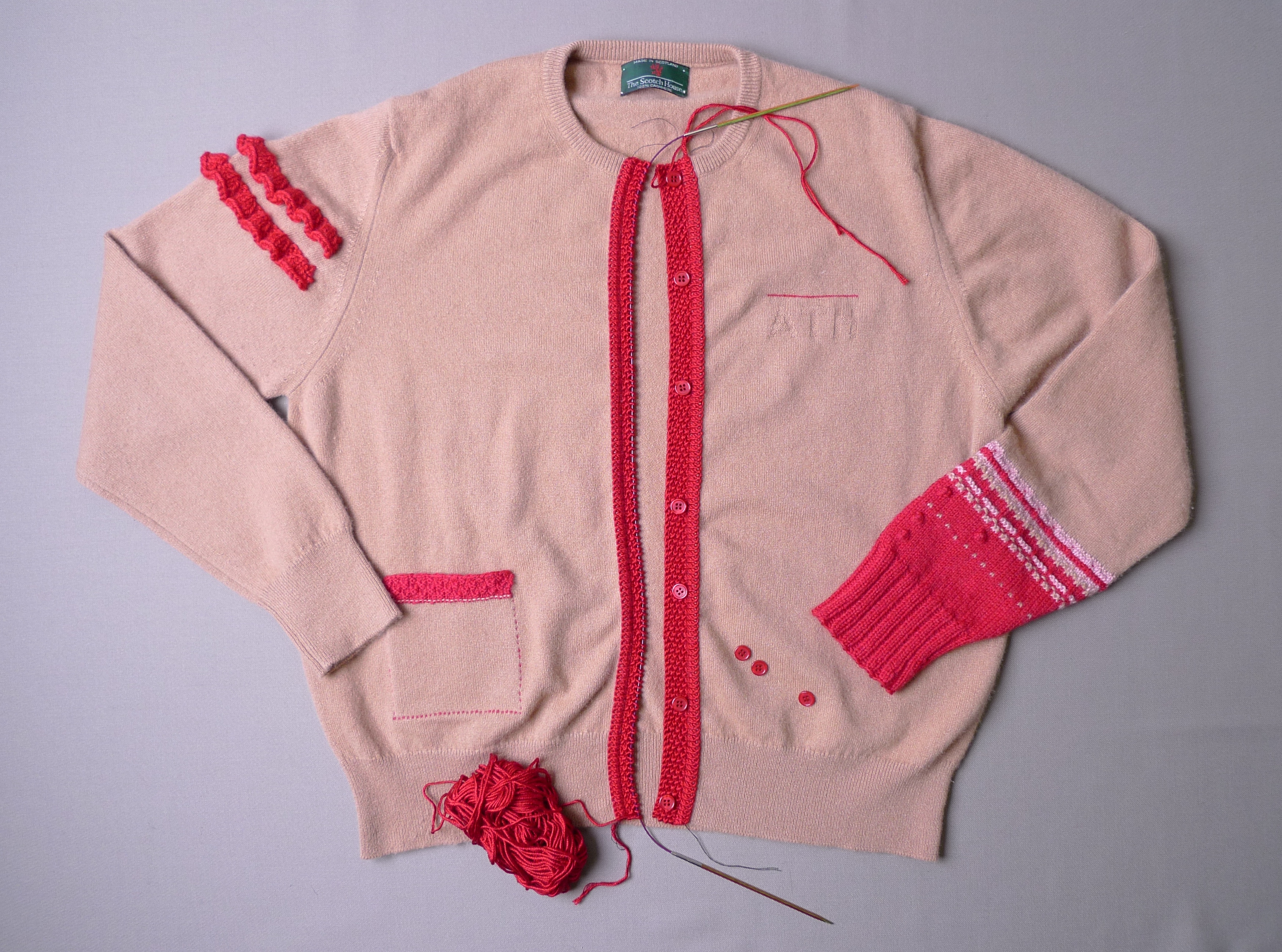PHD RESEARCH
Folk fashion: amateur re-knitting as a strategy for sustainability
Birmingham City University, 2010–2013
![]()
Supervisors:
Professor Colin Gale
Dr Anne Boultwood
Full thesis available to download from the British Library’s EThOS database – click here
The research has developed into further outputs, including Folk Fashion and Reknit Revolution. This Design Issues article discusses the overall methodological approach; see Publications for full list of related publications.

Supervisors:
Professor Colin Gale
Dr Anne Boultwood
Full thesis available to download from the British Library’s EThOS database – click here
The research has developed into further outputs, including Folk Fashion and Reknit Revolution. This Design Issues article discusses the overall methodological approach; see Publications for full list of related publications.
Abstract
This research considers amateur fashion making – ‘folk fashion’ – as a strategy for sustainability. Homemade clothes are often seen as sustainable, in comparison with the environmental and social problems associated with mass-produced ‘fast fashion’. However, this view is partly based on a simplistic and romantic view of the homemade, which has received little critical examination.
The study specifically investigates the reworking of existing garments through the use of knit-based skills, techniques and knowledge. This approach challenges the linear production-consumption model of the mainstream fashion industry. Because re-knitting techniques must be adapted to suit the particularities of each individual garment, re-knitting provides an opportunity for amateur knitters to engage with creative design.
The research employs a workshop methodology, which combines design research with creative methods. A group of seven female amateur knitters were interviewed individually before taking part in a series of workshop sessions. The project culminated in six of the participants re-knitting items from their own wardrobes. The detailed data gathered from this group is supported by comments from a wider community of knitters, primarily gathered via an informal participatory knitting activity.
The research finds that re-knitting can be seen as an effective strategy for sustainability. It not only provides a means of extending product life, but more holistically offers an alternative means of participating in fashion, and a way of addressing the relationship between fashion and consumption.
Beyond this central finding, four key insights emerge from the research. These are the metaphor of fashion as common land; the nuanced understanding of the experience of wearing homemade clothes in contemporary British culture; evidence of the ability of amateurs to design for themselves and ways in which this can be supported; and the understanding of the factors that should be considered when trying to develop a culture of reworking.
This research considers amateur fashion making – ‘folk fashion’ – as a strategy for sustainability. Homemade clothes are often seen as sustainable, in comparison with the environmental and social problems associated with mass-produced ‘fast fashion’. However, this view is partly based on a simplistic and romantic view of the homemade, which has received little critical examination.
The study specifically investigates the reworking of existing garments through the use of knit-based skills, techniques and knowledge. This approach challenges the linear production-consumption model of the mainstream fashion industry. Because re-knitting techniques must be adapted to suit the particularities of each individual garment, re-knitting provides an opportunity for amateur knitters to engage with creative design.
The research employs a workshop methodology, which combines design research with creative methods. A group of seven female amateur knitters were interviewed individually before taking part in a series of workshop sessions. The project culminated in six of the participants re-knitting items from their own wardrobes. The detailed data gathered from this group is supported by comments from a wider community of knitters, primarily gathered via an informal participatory knitting activity.
The research finds that re-knitting can be seen as an effective strategy for sustainability. It not only provides a means of extending product life, but more holistically offers an alternative means of participating in fashion, and a way of addressing the relationship between fashion and consumption.
Beyond this central finding, four key insights emerge from the research. These are the metaphor of fashion as common land; the nuanced understanding of the experience of wearing homemade clothes in contemporary British culture; evidence of the ability of amateurs to design for themselves and ways in which this can be supported; and the understanding of the factors that should be considered when trying to develop a culture of reworking.